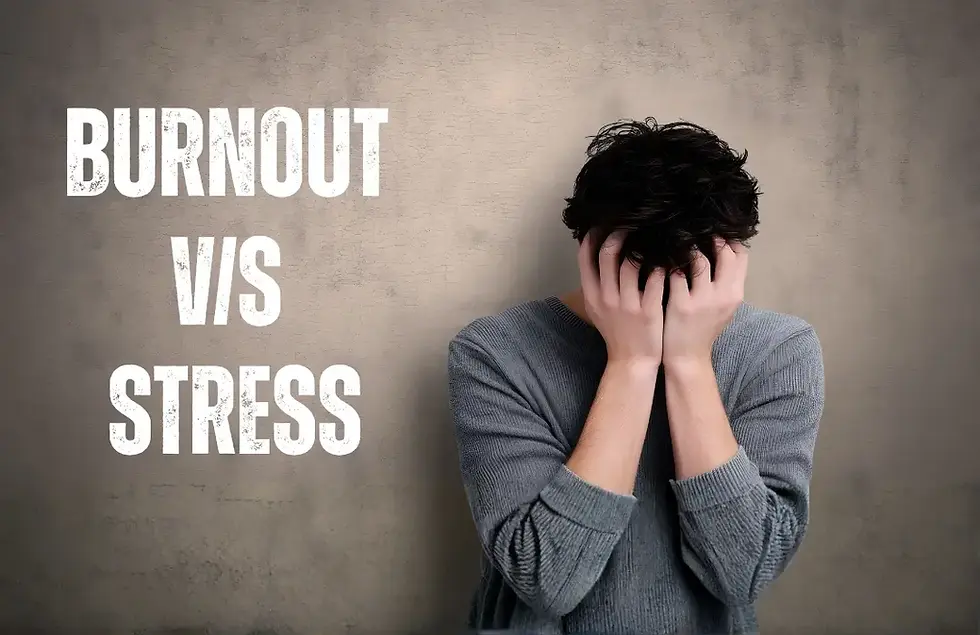How To Deal With Anxiety Attacks
- Mosaic Mental Health

- Nov 9, 2023
- 3 min read
Updated: Oct 30, 2025

An anxiety attack is an overwhelming state that strikes suddenly, without warning, and frequently for no apparent reason. It's common to occasionally feel anxious, but individuals with anxiety disorders frequently and excessively feel fear, terror, and panic in everyday situations.
How Long Do Anxiety Attacks Last?
Although they can last up to an hour, anxiety attacks typically last 5 to 20 minutes. It's critical to remember that you will be fine despite the symptoms of an anxiety attack.
Tips For Coping With Anxiety Attacks
Learn To Control Your Breathing
You can lessen uncomfortable physical symptoms and break the panic cycle by learning to breathe more slowly. By inhaling for three seconds, holding your breath for two seconds, and then exhaling for three seconds, you can practice slowing down and establishing a more consistent breathing rhythm.
Learn About What You Are Experiencing
Find out what might be causing your specific condition by speaking with your healthcare provider, and determine which treatments might work the best for you. Invite your friends and family, and request their help.
Learn How To Say Positive Things That Will Help You Cope
It can be useful to have "positive coping statements" that you can use to remind yourself that panic is not harmful or dangerous when you are feeling anxious or panicky.
Reminding yourself of these truths can aid in preventing additional panic attacks. You can help avoid further anxiety attacks by constantly reminding yourself of these truths. Such assertions could be, "I'll eventually feel better from my panic and anxiety. It doesn't last forever."
Follow Your Treatment Schedule
Take your medication as prescribed. Keep your therapy appointments, and complete any homework your therapist gives you. Maintaining consistency is important for getting the best results, especially when taking medication.
How Can Other People Help Their Loved Ones Having An Anxiety Attack?
It might be difficult to assist a loved one who is experiencing anxiety or panic attacks, but there are things you can do. Here are a few suggestions:
Avoid Pressuring Them
Avoid pressuring your friend or relative to do more than they are willing to. Exercising patience, paying attention to their requests, and moving things along reasonably are crucial.
Encourage Them To Breathe Slowly And Deeply
Do something repetitive or structured to help them focus, such as counting aloud or having them watch as you gently raise and drop your arm.
Gently inform them that you believe they may be experiencing an anxiety or panic attack and that you are available to help.
Ask How You Can Help
You can support them by asking them what they need or how to help. They might feel safer and calmer knowing someone nearby knows what to do if they feel frightened or panicked. You may also keep your voice calm or practice breathing techniques with them.
Encourage Them To Seek Help
If you think a friend or family member's anxiety is becoming a problem, you could encourage them to get therapy by contacting a doctor or therapist. Help them seek help from a therapist or help them arrange a doctor's appointment.
Final Thought
Remember that panic attacks will pass. They are not permanent. You are not expected to prevent or treat a panic attack. It is your responsibility to ride the panic wave. Surf it or plunge in. Panic usually gets worse when you try to stop it or fight it. Contact our team at Mosaic Mental Health to start your journey to mental wellness today!
Mosaic Mental Health is available to help individuals understand and manage their mental health concerns. We are here to assist you in expressing your thoughts and feelings to improve your overall well-being.
We are a Texas-based boutique psychiatric clinic that offers a comprehensive range of psychiatric and mental health services to residents of Texas, Colorado, Washington State, and Iowa. Telepsychiatry is available for the convenience of our patients and those concerned about their safety.
Mood disorders, ADHD, anxiety disorders, sleep problems, and thinking disorders are among the concerns we treat. We now accept patients ages six and up and offer same-day consultations; please contact us for more details!
Related Post:

.png)



Comments